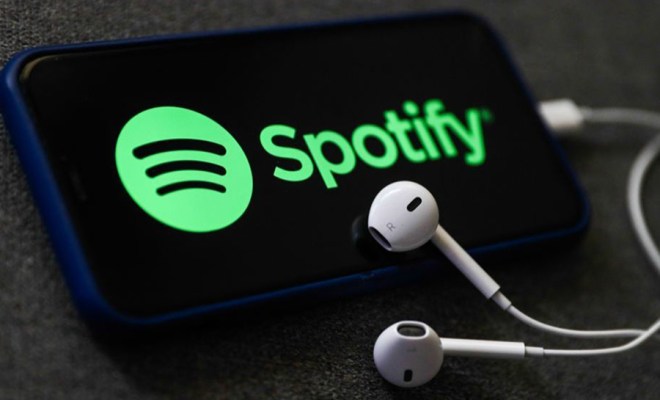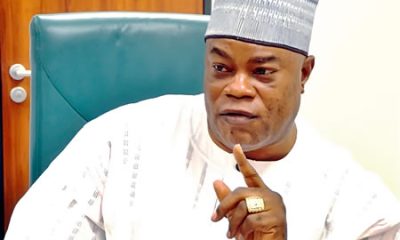Entertainment/Arts/Culture
Musical Artist worries over Effect of Piracy on the Industry

A fast rising musician Akinwande Olugbenga says the negative effect of piracy on the music industry in developing countries like Nigeria is huge.
Olugbenga, whose stage name is Timo (THETIMO) said this in a telephone interview with reporters in Abuja on Saturday.
The singer, who is also a songwriter with about 20 songs, one album and one Extended Play Record (EP) to his credit, said artists never got commensurate reward for their labour.
The singer, who released a power-packed EP with six tracks called “THE PRAYER’ on Sept.
3, said piracy or intellectual property theft was thriving in developing countries due to various factors.According to him, many people in developing countries face the challenge of not being able to afford data, face epileptic power supply among others, and would prefer to get content from the cheapest means possible.
He said to tackle piracy, artists should explore digital streaming stores like Apple Music, Spotify, Tidal, Amazon, and Deezer among others.
He said the stores help to fight theft because they have songs copyrighted on behalf of singers to protect their intellectual property.
The singer said, “If every artist uploads on these platforms and he or she is assured that the people will find their works there, then piracy will be reduced over time.
“However, people, particularly in developing countries would prefer to download songs than stream online due to cost of data and epileptic power supply among other reasons.
“In view of this, uploading songs on these very good and international platforms becomes counterproductive.
“The challenge is that your audience is waiting to download your songs on blogs and then you limit it to streaming platforms.
“So, the people must earn enough to be able to afford to consistently buy data and also subscribe regularly on these streaming platforms,” he said.
Olugbenga said that patronising the likes of Amazon was no mean feat particularly for upcoming artists either.
He said, “artists need to earn enough to be able to patronise streaming platforms because uploading on digital platforms is not so cheap.”
The singer, who came into limelight when he released his first single in September 2016 with a song titled “Mogbéoga (I acknowledge You)”, said another worriesome dimension to piracy, was digital piracy.
According to him, digital piracy is simply the online version of conventional piracy.
He said that this version of piracy involved singers paying to upload songs on blogs while the blogs run advertisements and make money from the traffic from downloading the songs, yet artists get paid nothing.
“In a developing country like Nigeria, this is the order of the day until the artist is big enough to do without blogs.
“Even at that, the people are waiting for songs on blogs, so, many bloggers will go get the adulterated versions of songs to supply to them on blogs.
“For instance, I was on a group created by one of my senior friends called praise and worship group where he daily posted songs to bless the members.
“I had to leave because I get hurt that people’s intellectual properties are being broadcast without prior consent nor remuneration.
“It is a major problem but come to think of the publicity it brings, it appears as a necessary evil,” he said.
He called for adequate sensitisation on the part of the artists, bloggers and the audience at large on the dangers of piracy.
He also said that there was the need to alleviate poverty, saying it was a major factor responsible for intellectual property theft.
Speaking on his genre of music, Olugbenga said he does more of inspirational songs with unique messages to enrich people while making them recognise the blessings of God around them.
“My purpose is to be a blessing to my world.
“I sing as the Spirit of God inspires me and I believe He can inspire me to address issues in our world like politics, war, crime, juvenile delinquency, love, joy and many others.
“I am not stuck with gospel music, so, if He gives me a song that does not fall within gospel classification, I will go ahead and sing it.
“I will not put it aside in the name of “I am a gospel singer”. For instance, He gave me a song titled SISE (Work) some time ago.
“It is a folk song that encourages people to work hard and smart while discouraging competition and hatred.
“For instance in the song I said, “you are your own competition” not others around you.
“I am sure the song is totally in sync with scripture but it is not a gospel song.”
On what inspired him to take to singing, Olugbenga said, “it all started when I was 18 years old in Ibafo, Ogun State.”
He also spoke on how challenging it was for upcoming artists across the globe to get endorsements, record labels and platforms.
He, however, expressed optimism that the industry particularly in Nigeria would continue to impact lives positively.
“We find Nigerian creatives on all platforms within and outside the country doing amazing works.
“We also have young Nigerian singers travelling to Dubai, UK, U.S., Canada and other countries to perform which is mind blowing.
Entertainment/Arts/Culture
Spotify Spotlights Fola, Thakzin as Africa’s Next Music Icons

Spotify has announced Nigerian Afrobeats talent, Fola and South African Afro House DJ and producer, Thakzin, as part of its RADAR Africa initiative.
According to the streaming platform, these artistes have promoted and shaped Sub-Saharan Africa’s music scene.
Spotify’s Head of Music, Sub-Saharan Africa, Phiona Okumu, said this in a statement on Thursday.
According to her, the platform is committed to discovering and amplifying emerging voices in championing boundary-pushing artistes shaping the sound of tomorrow.
Okumu said that Spotify Radar was not just a platform, but a launchpad.
“It reflects Spotify’s commitment to empowering local artistes across Sub-Saharan Africa and delivering the best listening experience in the region.
“From Lagos to Johannesburg, RADAR celebrates the diversity of talent on the continent, offering artistes equal access to global audiences.
“At Spotify, we believe in the power of African storytelling through music,” she said.
She described FOLA and Thakzin as incredibly unique artistes who represent the spirit of RADAR.
“By amplifying their journeys, we hope to inspire more creators across the continent to believe in their vision and reach for bigger stages,” she said.
Fola, born Folarin Odunlami, first caught attention with his freestyles on social media, quickly making a name for himself with his blend of Afrobeats rhythms and soulful storytelling.
His breakout EP ‘What A Feeling’, featuring the Bella Shmurda-assisted hit, “Who Does That”, laid the foundation for a fast-rising career that now includes collaborations with BNXN, Magixx, and BhadBoi OML.
“Looking at where I’m coming from, I see every opportunity as a blessing. So, it’s a blessing to have been selected, just like others before me.
“I want my fans to know that in the midst of all the noise, I made something they could truly connect with, feel and share with those who mean something to them.
“I want everyone who listens to at the very least, recognise that they’re witnessing the early days of something truly special,” Fola said.
On the southern tip of the continent, Thakzin’s journey began in Ivory Park, Johannesburg, where early jazz and kwaito influences.
Also, a deep respect for traditional percussion shaped his signature sound.
With co-signs from Black Coffee and international tastemakers like Laurent Garnier, his genre-defying approach to Afro House, heard in his 2023 anthem, “The Magnificent Dance”.
Following the release of Magnificent Dance, his version of ‘Horns In The Sun’, by DJ Kent, became a viral hit across South Africa and gained global traction, potentially surpassing the success of ,Magnificent Dance’.
Thakzin’s sound is rooted in African spirituality and healing, inspired by the rhythmic power of traditional drums.
Shaped by a musical upbringing and guided by his father, a keyboardist, he blends rich harmonies with percussive elements to create an immersive Afro-house experience.
Entertainment/Arts/Culture
Popular Chinese Singer Executed by Firing Squad over Murder of Girlfriend

Popular Chinese actor and singer, Zhang Yiyang has been executed for the murder of his underage girlfriend.
Zhang Yiyang became the first ever Chinese celebrity to be executed by firing squad.
The Intermediate People’s Court of Xianyang in North Shaanxi Province made the report of his execution public in July 2025.
According to the report, the actor was executed on December 18 2024 for attacking his 16-year-old girlfriend with a knife in 2022, cut her left carotid artery, jugular vein, trachea and esophagus, which after massive bleeding led to her death.
Zhang started dating the victim in September 2021, before the victim proposed breaking up after a dispute.
After the murder, he took away the deceased’s mobile phone, discarded the knife and other weapons and related items in a reservoir to destroy evidence.
On the following day, he attempted to commit suicide at a hotel but was discovered by one of the hotel workers, who reported to the police.
His popular songs include ‘I Only Care About People Who Care About Me’, ‘So Care About You’ and ‘Crying Man’.
Entertainment/Arts/Culture
Why Igbo Men Struggle in Politics – Pete Edochie

Veteran Nollywood actor, Pete Edochie, has stirred controversy with a bold statement about Igbo politicians, claiming they are not adept at navigating the Nigerian political landscape.
In a recent interview, Edochie argued that the average Igbo man lacks the temperament required for politics, which often involves a degree of “treachery” and strategic compromise.
“An Igbo man is not a good politician.
And I will tell you why: people who are used to politics or the treachery that characterises politics can overlook a lot of things. But the Igbo man is not constituted to condone treachery a second time,” he said.Edochie emphasized that once an Igbo man is betrayed, he is unlikely to forgive or reconnect with the offender, which, in his view, hinders long-term political alliances.
“If you hurt the Igbo man once in politics, he will never give you an opportunity to hurt him again. He will recoil. That’s the average Igbo man.”





























